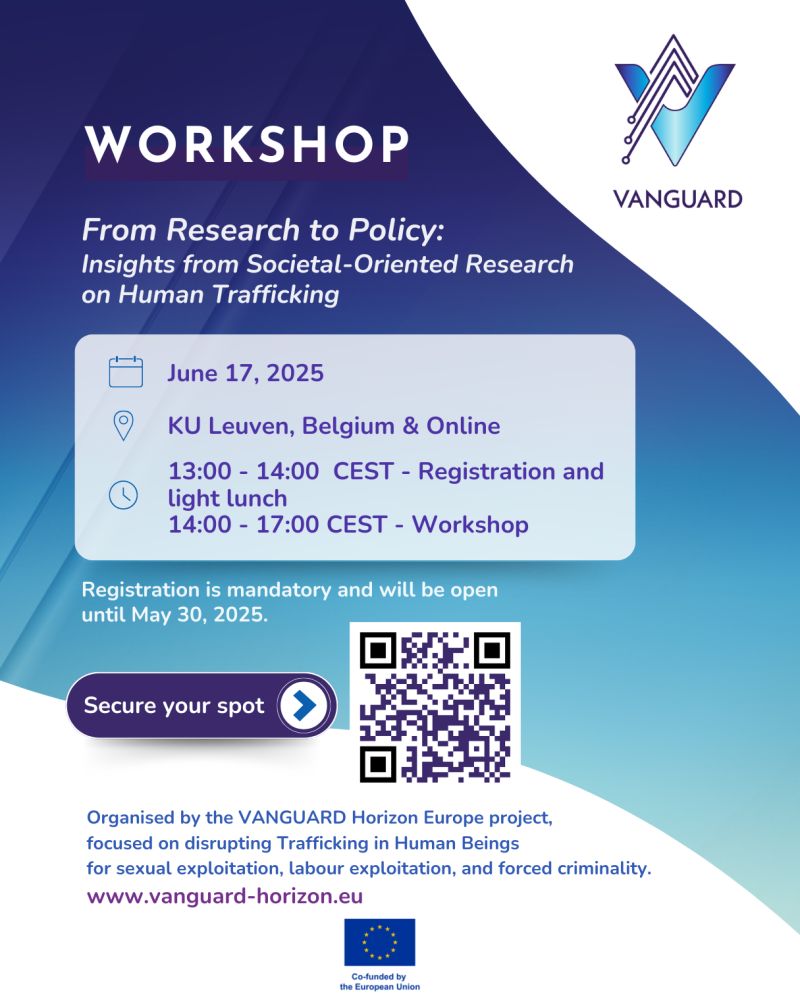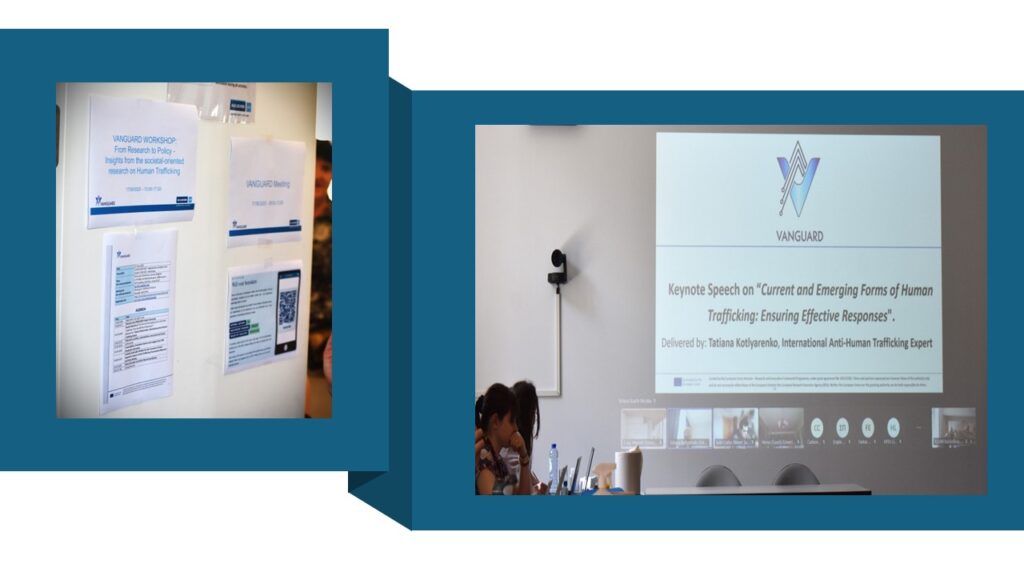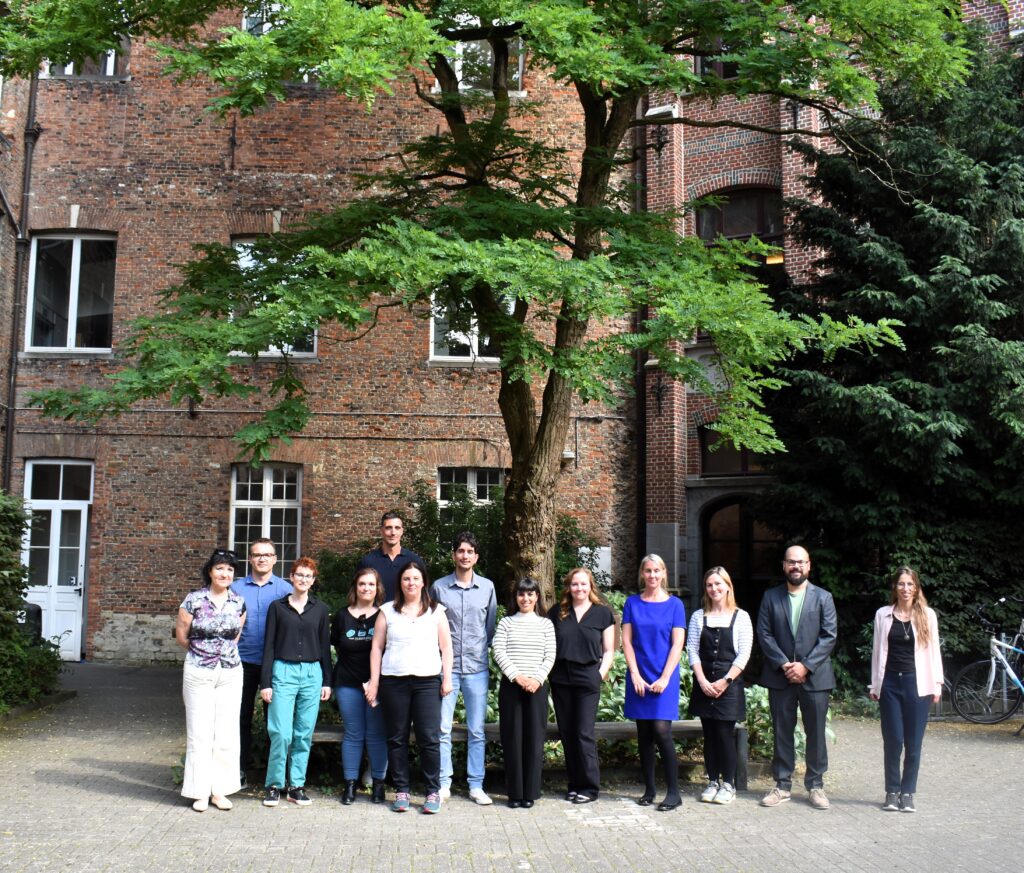“From Research to Policy – Insights from the Societal-Oriented Research on Human Trafficking under the EU-funded VANGUARD Project“

The first VANGUARD workshop “From Research to Policy – Insights from the Societal-Oriented Research on Human Trafficking under the EU-funded VANGUARD Project”, took place on June 17, 2025, both on site, at KU Leuven’s premises, and online. This workshop aimed to bring together experts in the field to (a) present the desktop and preliminary empirical research results and the good practices, as emerged from the research conducted under the project activities; (b) discuss emerging policies and develop initial recommendations; and (c) gather feedback, input, and recommendations, exploring in parallel research gaps and discussing future initiatives.
More than 50 multidisciplinary experts from across Europe participated to the workshop, to exchange feedback and ideas as well as to explore the latest findings and policy implications in the fight against trafficking in human beings (THB).
The workshop opened with a VANGUARD project overview delivered by the project coordinator (CERTH), followed by a keynote speech from International Anti-Human Trafficking Expert Tatiana Kotlyarenko, , titled “Current and Emerging Forms of Human Trafficking: Ensuring Effective Responses”. Ms Kotlyarenko highlighted the dynamic nature of THB, underlining in parallel its interlinkages with current armed conflicts and security crises, and outlining the importance of embedding trafficking awareness and prevention strategies within broader security, migration, and recovery frameworks.



A thorough presentation on THB victims’ profiles, vulnerabilities and protective factors has been delivered by Dr. Carlotta Carbone (UCSC), with emphasis on the findings around vulnerabilities and protective factors of people involved in three forms of human trafficking (sexual exploitation, labour exploitation, and forced criminality) both from literature review and empirical research though semi-structured interviews with experts and THB victims (in total 42). Then, Shannon von Scheele (GGMH) outlined the main findings around vulnerabilities and protective factors stemming from semi-structured interviews with THB perpetrators with particular focus on THB for purposes of sexual exploitation (in total24),and leading the discussion on the ethical implications of including input from perpetrators in prevention interventions. Afterwards, Dr. Karen Latricia Hough (FUNDEA) along with Ms. Teresa Fortili (Survivor leader – HART), presented the initial research on existing good-practices for including survivors in both anti-trafficking preventive measures and policy making, outlining in parallel gaps in current anti-trafficking research and the need for creating sustainable models for the inclusion of survivors’ voices in policy making and relevant preventative measures. The workshop concluded with a presentation on the current EU Policy and legal frameworks on THB by Steffi Davey (CENTRIC), along with insights as derived from the relevant project interviews, encouraging the participants to provide initial thoughts and feedback on the formulation of preliminary policy suggestions to inform EU and national anti-trafficking strategies.


This first VANGUARD workshop encouraged the meaningful participation of experts from different backgrounds though dynamic interactions and active involvement, creating a collaborative environment and enabling diverse perspectives to enrich the exploration of emerging trends in human trafficking, with an emphasis on societal impact and survivor-informed policy. Future similar workshops will capitalise on the research-based insights and multidisciplinary discussions, aiming to support ongoing cross-sectoral collaboration.

